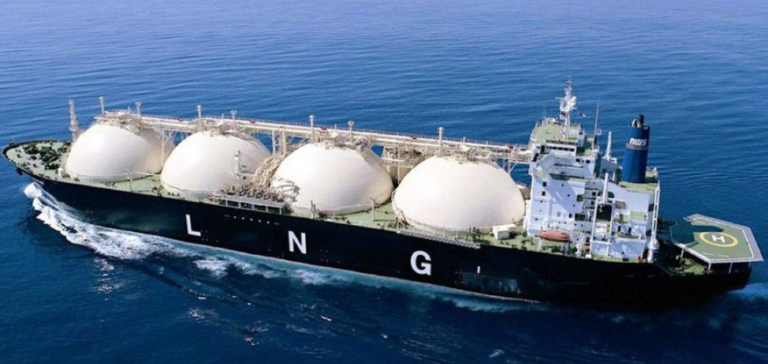Since Russia’s invasion of Ukraine, Europe has seen a significant expansion in its liquefied natural gas (LNG) import capacity. According to the latest report from the Institute for Energy Economics and Financial Analysis (IEEFA), a think-tank, Europe has already commissioned 36.5 billion cubic meters of new capacity, with a further 106 billion cubic meters planned between now and 2030. This would bring Europe’s total LNG import capacity to 406 billion cubic meters.
LNG import overcapacity in Europe
This rapid growth is raising concerns about a possible imbalance between LNG supply and demand in Europe. According to the IEEFA report, projected LNG demand in Europe in 2030 will not exceed 150 billion cubic meters. This could lead to a potential excess of nearly 256 billion cubic meters of unused capacity.
Growth in LNG import capacity
IEEFA has revised its LNG demand forecasts downwards compared with its previous projections, based on current gas consumption in Europe in 2023. LNG imports by Europe, including the EU, Turkey and the UK, reached around 125 billion cubic meters between January and September 2023. Although this represents an increase of 68% over the same period in 2021, growth over 2022 is only around 4%. This indicates a slowdown in demand after a period of strong growth following the start of the war in February 2022.
Slower import growth
Despite the commissioning of 19.5 billion cubic meters of new capacity in 2023 (in addition to 17 billion in 2022), imports only increased by 4.8 billion on the previous year, according to IEEFA. What’s more, the trend has reversed since July 2023, with a significant drop in import levels compared with 2022. In September 2023, LNG imports were 18% lower than in September 2022, as the report points out.
IEEFA also notes that the average utilization rate of EU LNG import terminals between January and September 2023 was 58%. This raises questions about the viability of new LNG import capacity and the need for a more cautious assessment of future projects.
Europe is at a crucial turning point when it comes to LNG imports. While import capacity has grown spectacularly, demand has not kept pace. It is essential to monitor developments closely to avoid overcapacity, which could have major economic repercussions. Future decisions on gas infrastructure need to be taken carefully to ensure the efficiency and sustainability of the European LNG market.






















